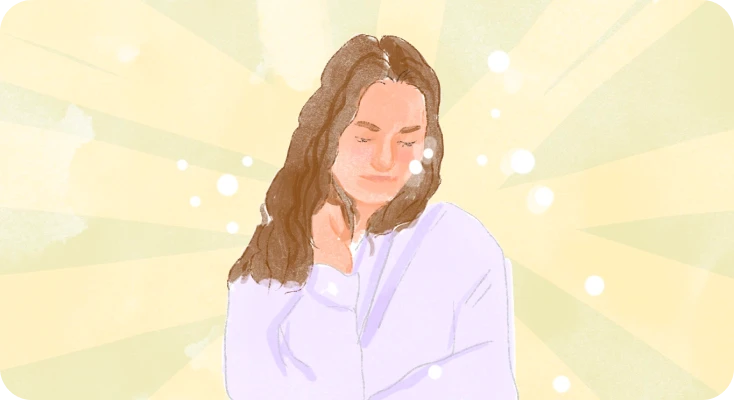Have you often felt like the forgotten one in your family because you are a middle kid? Like Malcom from a TV show from the 1990s? You’re not alone.
If you grew up sandwiched between an older sibling who paved the way and a younger one who grabbed all the attention, you’re likely familiar with middle-child syndrome.
This term has been used to describe the feelings of neglect and being overshadowed that middle children may experience during their childhood and the effects later on. But is there more to it than just a cliché?
In this blog post, we’ll explore Middle Child Syndrome, uncover its nuances, and show how being a middle child can actually be a strength.
Key Takeaways:
- Middle Child Syndrome is a term used to describe the feelings of neglect and being overshadowed that middle children may experience.
- Although it’s more of a pop culture phenomenon than a clinical diagnosis, birth order psychology indicates that our place in the family can shape our personality.
- Middle children often feel overlooked, struggle with identity, seek attention, act as mediators, and have a strong sense of injustice.
- These challenges can foster adaptability and diplomacy, making middle children flexible and open-minded.
- Understanding these traits helps with personal growth and leveraging them in adulthood.
What is middle child syndrome?
The concept of middle-child syndrome isn’t new. Psychologists have long studied the impact of birth order on personality development.
According to the American Psychological Association (APA), “Middle child syndrome is a hypothetical condition purported to be shared by all middle-born children.
It is based on the assumption that middle children in a family develop personality characteristics that are different from those of first-born and later-born children”.
Austrian psychotherapist Alfred Adler, a pioneering figure in psychology, noted that middle children often “feel squeezed” between the more dominant firstborn and the more pampered youngest sibling. This dynamic can profoundly shape their behavior and self-perception.
We also asked Imani Bowman, a Licensed Clinical Professional Counselor, opinion on middle child syndrome: “While not an official diagnosis, Middle Child Syndrome is a way of understanding differences in personality within a family. Understanding how birth order potentially impacts you and your familial relationships can be a powerful tool“
“In working with clients who are middle children, I have seen many different manifestations of Middle Child Syndrome. I have worked with some families that totally embrace their middle child and develop a healthy understanding of their behavior, while others have a hard time dealing with some of the more challenging behaviors of the middle child.”
“In my experience, she adds, families that embrace their middle children tend to have better outcomes and more well-adjusted middle children in adulthood.”
Is middle child syndrome a real thing?
You might ask, “Is middle child syndrome a real thing?” First off, let’s bust some myths. Middle child syndrome isn’t a scientific diagnosis—it’s more of a pop culture phenomenon.
Furthermore, the APA states that a “child’s birth order in a particular family may have small, subtle influences on personality and intelligence but not strong and consistent effects on psychological outcomes.”
But why do many adults who were second in birth order really feel that difference during their upbringing?
Birth order psychology does suggest that our place in the family can shape our personality.
For example, based on an analysis of 200 birth order studies, the personality traits most often linked to middle children were extroversion and a sense of alienation.
Others, for example, users from Quora, also state that they “felt lost in the shuffle,” unlike the firstborn, who often receives the most attention, or the youngest, who is typically “doted upon.”
Ultimately, middle child syndrome exists and refers to the feelings of neglect, lack of identity, and perceived inferiority that many middle children experience.
Middle Child Syndrome vs. Oldest Child Dynamics
While both middle and oldest children face unique challenges and develop distinct traits, there are also some striking similarities.
Both groups often feel a sense of responsibility, albeit in different ways, and both can struggle with feelings of self-worth and identity.
Apart from that, both middle and oldest children may crave more attention and validation, though for different reasons.
Middle children seek attention because they feel overlooked, while oldest children seek validation to meet high expectations.
Plus, middle children may have trouble fitting in, and the responsibilities of being an exemplary role model can be particularly heavy for the eldest ones, especially the eldest daughters.
Therefore, the two groups develop coping mechanisms to deal with their unique challenges.
For instance, middle children tend to mature into diplomatic and flexible adults, whereas the eldest ones tend to take charge and be responsible.
Now, though, let us examine these characteristics of second-child syndrome more closely.
5 signs of middle child syndrome (+tips)
Here are seven characteristics that you might be experiencing with Middle Child Syndrome:
1. Feeling Overlooked
One of the most common signs of middle child syndrome is a persistent feeling of being unappreciated. Middle children often feel that their achievements and contributions go unnoticed compared to their siblings. This sense of invisibility can lead to low self-esteem and a constant need for validation.
Tip: Make an effort to express your needs and achievements to your family. Sometimes, a gentle reminder can help shift the focus back to you.

2. Struggling with Identity
Also, middle children may struggle to carve out a distinct identity within the family. While the firstborn is often seen as the achiever and the youngest as the baby, the middle child may lack a clear role. This can result in a lifelong quest for uniqueness and a tendency to compare oneself to others.
Tip: Focus on your passions and interests. Pursuing what you love can help you build a strong sense of self that’s independent of your family dynamics.
3. Seeking Attention
In addition, middle children might engage in attention-seeking behaviors to compensate for their perceived lack of attention. These behaviors can manifest in various ways, such as acting out, excelling in specific areas to gain recognition, or becoming the peacekeeper in family disputes.
Tip: This lack of attention can be a blessing in disguise. It may teach you to seek validation from within rather than relying on external approval. You become your own biggest cheerleader, which is a powerful trait.
4. Acting as a Mediator
Another possible characteristic of middle children is that they can play the role of mediator between siblings. You may find that you’re often the one trying to keep the peace and smooth over conflicts within the family.
Tip: Use your mediation skills to your advantage in your professional and personal life. Your ability to see multiple sides of a situation is a strength.
5. Resilience and Independence
On the flip side, the relative lack of attention can foster resilience and independence in middle children. Because they aren’t constantly under the parental microscope, they often have more freedom to explore their interests and develop self-reliance.
Tip: While being independent is important, don’t isolate yourself. Maintaining meaningful connections with others is crucial for emotional well-being. Find a balance that works for you.
6. Feeling of Injustice
Middle children might develop a heightened sense of injustice or unfairness, feeling that their needs are not met as equally as those of their siblings.
Tip: Cherish your eye for fairness. This sense of justice can be a powerful motivator for advocating for yourself and others.
7. Being Highly Adaptable
Lastly, middle kids are often masters of adaptation. Growing up in the middle means you’re used to adjusting to different roles and expectations. This adaptability can make you versatile and open-minded, but it can also lead to a lack of stability.
Tip: While being adaptable is beneficial, it’s also important to establish your own boundaries and routines. Finding a balance between flexibility and stability can enhance your well-being.
Impact of middle child syndrome on adults
Your position in the family can shape your attachment style, which is how you form emotional bonds.
If you felt overlooked as a middle kid, you might have developed an anxious attachment style. This can make you more dependent on others for validation.
Also, being the middle kid in the family sometimes requires you to be a peacemaker. If you’ve spent your whole life mediating between your siblings, it’s no surprise that you continue to play this role in your adult relationships.
While this can make you a great partner or friend, it can also lead to people-pleasing tendencies.
Overall, the emotional toll of middle child syndrome might be significant. Feelings of emotional neglect and invisibility can lead to anxiety, depression, and chronic stress.
Middle children may internalize these emotions, affecting their mental health and overall quality of life.
The hidden strengths of the middle child
The traits that middle children develop can significantly influence their personal development. While some may struggle with feelings of inadequacy, others may thrive thanks to the unique skills they gain.
Emotional Intelligence
Middle children often excel in emotional intelligence, having learned to read the emotional cues of both older and younger siblings. This skill can lead to strong interpersonal relationships and effective communication in adulthood.
Leadership Qualities
Interestingly, many middle children grow up to be effective leaders. Their ability to understand multiple perspectives makes them well-suited for leadership roles, where empathy and negotiation are key.
Creativity and Innovation
Without the pressure to conform to the expectations placed on firstborns or the indulgence granted to the youngest, middle children are often free to pursue their interests. This freedom can result in higher levels of creativity and innovation.
Emotional Resilience
Middle children often develop strong emotional resilience. You’ve had to navigate dysfunctional family roles and dynamics, which can make you more adaptable to stress and change in adulthood.
Sum up
Being a middle child has its ups and downs, but understanding how MCS affects you in adulthood is the first step toward growth. From career choices to relationships, the traits you developed as a middle child can influence various aspects of your life.
Want to explore more about how your childhood shapes your personality? Take a childhood trauma test from Breeze. Gain valuable insight and unlock your 28-day personal plan for a more fulfilling life!
Disclaimer
This article is for general informative and self-discovery purposes only. It should not replace expert guidance from professionals.
Any action you take in response to the information in this article, whether directly or indirectly, is solely your responsibility and is done at your own risk. Breeze content team and its mental health experts disclaim any liability, loss, or risk, personal, professional, or otherwise, which may result from the use and/or application of any content.
Always consult your doctor or other certified health practitioner with any medical questions or concerns
Breeze articles exclusively cite trusted sources, such as academic research institutions and medical associations, including research and studies from PubMed, ResearchGate, or similar databases. Examine our subject-matter editors and editorial process to see how we verify facts and maintain the accuracy, reliability, and trustworthiness of our material.
Was this article helpful?






